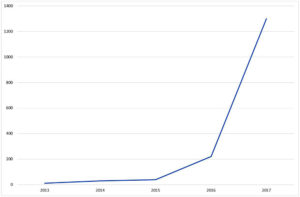And what does this mean for any other foreigner leading or looking to reach the top of a Japanese company? Obviously the Nissan story is evolving hour by hour, so what follows is based on my current understanding as of 20th November 2018.
The specific accusations are that Carlos Ghosn received share price-related compensation and the Dutch holding company of which he was a director along with Greg Kelly, as part of the Nissan-Renault alliance, used its funds to acquire and refurbish houses which were his residences. These were not declared, not as an income tax issue, but as a fiduciary/governance issue, in terms of declarations to the Japanese securities and exchange commission.
Is the way this possible misuse of funds was exposed specifically because Ghosn was not Japanese? Actually a lot of Japanese Presidents and Chairmen are allowed to use company funds for personal reasons, and because of the blurring of personal/private and employer in Japanese companies, it is quite common for companies to provide housing and other benefits far beyond the norm in the West, particularly to senior executives, who are not, on paper, paid that well. This is particularly true of companies where the President is also the founder or has a high degree of autonomy.
Terrie Lloyd, a long term resident and entrepreneur in Japan wrote an interesting piece on this recently – https://www.terrielloyd.com/terries-take/tt-970-imploding-one-man-shacho-listed-companies-e-biz-news-from-japan/
You also can’t help wondering what had been going on over the years in terms of internal checks and corporate governance at Nissan if they did not know and challenge what kind of “benefits” and compensation Ghosn was getting – as illustrated by this blog post from a Japanese corporate insider https://bdti.or.jp/en/blog/en/nissanltr/?77
So the next question is, as it often is with Japanese corporate scandals, why is this particular accusation being exposed and why now? The official story is that it was made by a whistleblower, which necessitated an internal investigation, and then this led to a plea bargain which would reduce the penalties to Nissan.* There is only one other instance of this happening – with Mitsubishi Hitachi Power Systems and a Thai bribery case – and it was a Japanese manager who was involved.
But I suspect, as do other analysts, that Nissan chose to pursue this and publicly expose it because they didn’t like the direction Ghosn was taking the company in and couldn’t work out another way to get rid of him. There was undoubtedly a long running worry about the degree of control/interference by Renault and the French government and Ghosn’s intention to make the alliance irreversible by the time he finally stepped down in 2022. I also just read a story in the Nikkei Business magazine that Ghosn was very keen for the alliance to partner with Google, Microsoft and Daimler and Chinese companies to create a CASE (Connected, Autonomous, Shared, Electric) strategy. That degree of “foreignness” and with the US, and China, and Daimler with whom Mitsubishi Motors already had a failed alliance might have elicited an allergic reaction from Japanese executives at Nissan and Mitsubishi Motors.
But also, which accounts for the strong words from current President Saikawa, indulgence of senior executives is tolerated so long as they still seem to be working for the good of the company, and Ghosn not turning up for the public apology after the inspection scandal, and the sense that it was his corporate culture of imposing aggressive targets on employees that might have caused that scandal – and yet he blamed Saikawa, might have tipped Nissan executives further into exposing the issue publicly rather than dealing with it in the usual way.
The usual way (see Fujitsu/President Nozoe resignation in 2009), when other executives decide that a President has to go sooner than the usual carousel of 6 years as President and another 6 years as Chairman because they think he’s gone beyond what is morally acceptable and/or they don’t like his strategy, is that they try to let the executive exit honourably, by getting him to resign due to illness or some similar blamefree excuse.
Maybe this option was offered to Ghosn – who had after all been leading Nissan as President and Chairman for nearly 20 years, so way beyond the norm for Japan. But I can imagine that he refused it – and this could be attributed to him being “foreign” – instead of understanding Japan’s “shame” culture, he would have gone down the Judaeo-Christian and legalistic route of saying he had a contract until 2022 and as far as he was concerned he had done nothing wrong, innocent until proven guilty, so bring it on.
There may also be a political aspect – again nothing specifically to do with Ghosn being foreign – but Nissan may have got the hint from Japanese government agencies that they would be supported in taking Ghosn down because they were not politically in favour of the direction he was taking the alliance in – see what happened to Horiemon/Livedoor.
So in summary, I doubt Ghosn was treated differently because he was foreign per se, but because he was foreign he probably reacted differently, just as Michael Woodford did when asked to resign after uncovering scandals at Olympus, believing his own innocence and not fearing public exposure.
But underlying this there could be a resistance in Nissan and beyond, to any further globalizing, whether it results in French or Chinese or American or German control or influence. If I was a foreign executive, particularly if I was Christophe Weber at Takeda, I would be watching further developments in this case like a hawk and making sure I built as many strong, trusting relationships with my Japanese executives as possible.
*The story has indeed evolved – it now turns out that Nissan itself was not part of the plea bargaining deal, it was the two officials, one non-Japanese SVP who managed the Dutch subsidiary and one Japanese who was Ghosn’s chief of staff, who agreed to cooperate with the investigation under a plea bargain.
 LinkedIn
LinkedIn YouTube
YouTube Although around 10,000 manufacturing jobs in Japanese electronics companies in the UK were lost in the 1990s-2000s, about the same number have been added, either created by Hitachi Rail or in the automotive or air conditioning sectors. Japanese electronics companies such as Sony, Fujitsu, Panasonic, NEC, Mitsubishi Electric and Hitachi still all employ thousands of people in the UK.
Although around 10,000 manufacturing jobs in Japanese electronics companies in the UK were lost in the 1990s-2000s, about the same number have been added, either created by Hitachi Rail or in the automotive or air conditioning sectors. Japanese electronics companies such as Sony, Fujitsu, Panasonic, NEC, Mitsubishi Electric and Hitachi still all employ thousands of people in the UK.
 g down the Swindon UK factory was not the only announcement Honda made in February 2019. They are ceasing production of Civics in Turkey, merging their motorbike production in Brazil, bringing R&D for motorbikes in-house and also making some unusual appointments at the executive level.
g down the Swindon UK factory was not the only announcement Honda made in February 2019. They are ceasing production of Civics in Turkey, merging their motorbike production in Brazil, bringing R&D for motorbikes in-house and also making some unusual appointments at the executive level.
 rudlin
rudlin rudlinconsulting
rudlinconsulting